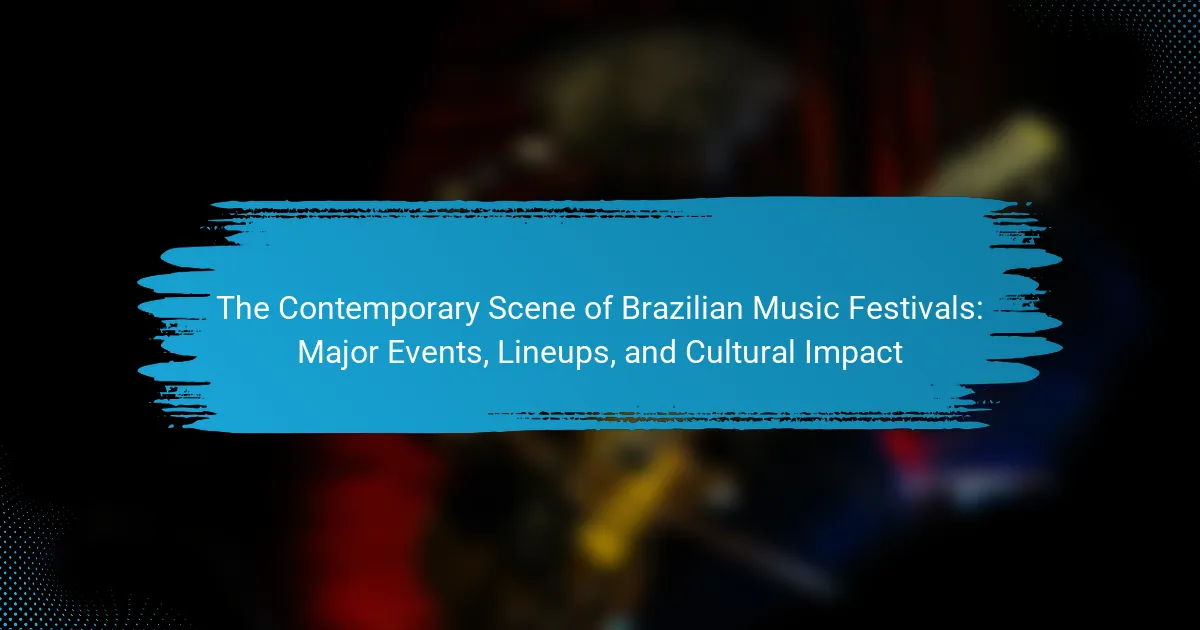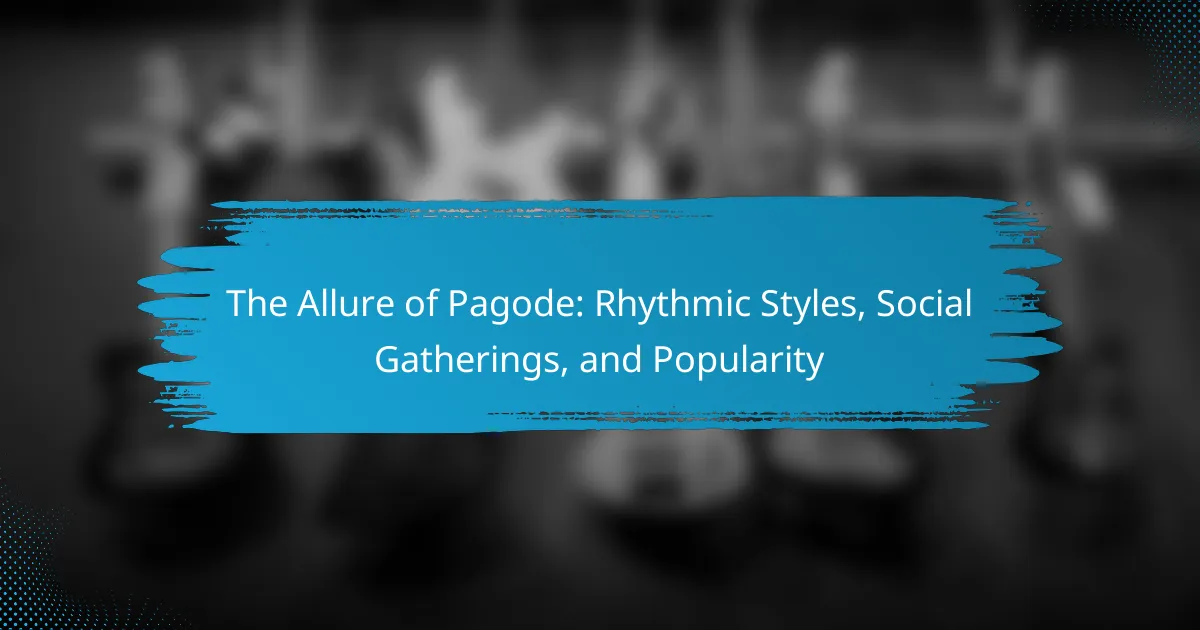Pagode is a Brazilian music genre that evolved from samba, recognized for its distinct rhythmic patterns and the use of instruments such as the cavaquinho and pandeiro. Originating in the late 1970s and gaining traction in the 1980s, Pagode is integral to social gatherings, fostering community bonding and cultural expression through music and dance. The […]

The Influence of International Shows on Brazilian Television: Adaptations, Audience Reception, and Cultural Exchange
The article explores the influence of international shows on Brazilian television, focusing on adaptations, audience reception, and cultural exchange. It highlights how formats from the U.S. and Europe, such as reality shows and scripted series, are tailored for Brazilian viewers, with “Big Brother Brasil” serving as a prominent example. The piece emphasizes the enhancement of […]

The Contemporary Scene of Brazilian Music Festivals: Major Events, Lineups, and Cultural Impact
The contemporary scene of Brazilian music festivals is characterized by diverse genres, cultural fusion, and large-scale events, with notable festivals such as Rock in Rio and Lollapalooza Brazil. These festivals showcase a wide range of music, including samba, rock, electronic, and MPB, while also promoting emerging local talent and facilitating cultural exchange. The integration of […]

The Evolution of Brazilian Reality Shows: Formats, Popularity, and Audience Reception
Brazilian reality shows are unscripted television programs featuring real people and their interactions, which gained popularity in the early 2000s with shows like “Big Brother Brasil.” Over time, this genre has evolved to include various formats such as talent competitions, dating shows, and lifestyle challenges, reflecting changes in audience preferences and cultural trends. The article […]

The Evolution of Comedy in Brazilian Film: Styles, Iconic Comedians, and Audience Reception
The article explores the evolution of comedy in Brazilian film, highlighting the various styles and iconic comedians that have shaped this genre over the decades. It traces the journey from silent slapstick humor to the dialogue-driven comedy of the 1930s, featuring notable figures like Oscarito and Grande Otelo. The discussion includes the emergence of political […]

Brazilian Theatre for Children: Educational Benefits, Popular Plays, and Engaging Techniques
Brazilian Theatre for Children is a specialized genre of performing arts aimed at young audiences in Brazil, combining storytelling, music, and visual elements to engage and educate. The genre often addresses educational themes and social issues, fostering creativity and critical thinking through interactive performances. Notable plays such as “O Pequeno Príncipe” and “A Menina do […]

The Role of Improvisation in Brazilian Theatre: Techniques, Notable Groups, and Audience Engagement
Improvisation is a vital component of Brazilian theatre, enhancing creativity, spontaneity, and audience engagement. This article explores various improvisational techniques employed in Brazilian theatre, highlighting notable groups such as Grupo de Teatro da Universidade Federal do Rio de Janeiro, Grupo de Teatro Improvável, and Barbixas. These groups utilize improvisation to create unique narratives and foster […]

Romantic Comedies in Brazil: Best Titles, Popular Tropes, and Audience Appeal
Romantic comedies in Brazil combine humor and emotional storytelling, featuring relatable characters who navigate love and relationships within the context of Brazilian culture. These films often showcase cultural elements, music, and dance, while addressing social issues like class differences. Common tropes include love triangles, quirky best friends, and family interference, which contribute to the genre’s […]

Festa do Peão de Barretos: Rodeo Events, Cultural Impact, and Visitor Experience
The Festa do Peão de Barretos is a major rodeo festival held annually in Barretos, São Paulo, Brazil, recognized as one of the largest in Latin America. Established in 1955, the festival features a variety of rodeo competitions, including bull riding, team roping, steer wrestling, and barrel racing, attracting over 1 million visitors each year. […]

The Evolution of Brazilian Musical Theatre: Key Productions, Genres, and Influential Figures
The article explores the evolution of Brazilian musical theatre, highlighting its significant productions, genres, and influential figures over the decades. Beginning in the late 19th century with operettas, the genre gained prominence with the premiere of “O Guarani” in 1870. Throughout the 20th century, Brazilian musical theatre integrated samba and bossa nova, with key contributions […]
